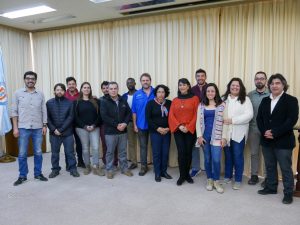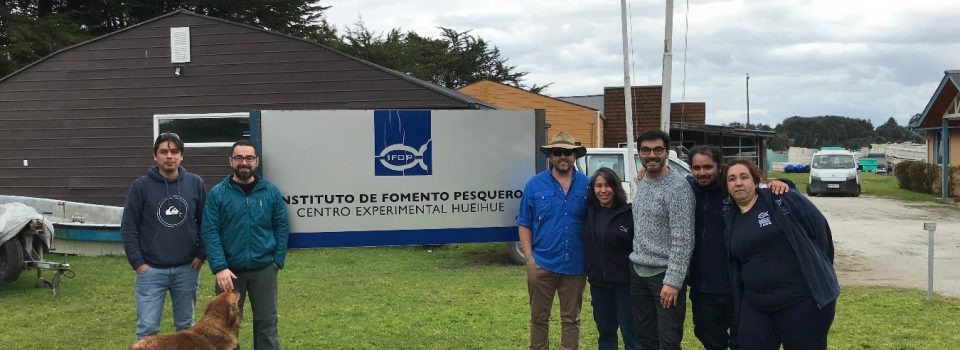Australian aquaculture repopulation expert visits Chile
September 18th, 2019Between September 1rst and 8th, Dr. Matthew Taylor visited Chile invited by Fisheries Development Institute.

Dr. Matthew Taylor is a Principal Investigator and Acting Director of the Port Stephens Fisheries Institute under the Department of Primary Industries of New South Wales, Australia. It has more than 100 scientific publications and has developed numerous studies applying innovative approaches to improve both productivity and sustainability of fisheries. Within research lines that it currently develops, there are ecology, fishery and crustaceans ecotoxicology and fish from estuarine environments, stocking and stock improvement based on aquaculture, habitat recovery for fisheries improvement, fisheries recruitment, marking and animalsmonitoring.
The technical visit took place in Coquimbo and Los Lagos regions, including field visits to study sites, hatcheries and farming centers; meetings with the IFOP teams working on repopulation studies of river shrimp and algae; and the realization of two workshops open to the community, which were organized jointly with the Universidad Católica del Norte (Coquimbo) and Universidad Santo Tomás and Universidad Arturo Prat (Puerto Montt) and where the advances and challenges of Australia and Chile in repopulation based on aquaculture.
Dr. Francisco Cárcamo, Head of the repopulation and cultivation department of IFOP commented “The visit was beneficial in many aspects, highlighting knowledge of how New South Wales state with the support of scientists and various involved articipants, have defined and are implementing a strategy and various recovery plans for estuarine fisheries of importance for recreational fishing, using aquaculture as a means for them. This strategy incorporates the best available science, which includes approaches from ecology, trophic and economic modeling, fisheries, aquaculture genetics, monitoring, effectiveness evaluation. Additionally, future collaborations were projected in the field of aquaculture-based repopulation. ”
